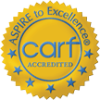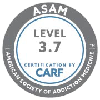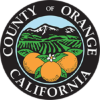Have you ever heard of the acronym HALT in addiction? It stands for Hungry, Angry, Lonely, and Tired – four seemingly simple states that can be vital emotional states for people in recovery to recognize.
HALT in Addiction: Where does it come from?
HALT isn’t some ancient wisdom passed down from mystical sages. It’s a relatively modern idea born from the practical experiences and observations of addiction counselors and recovery professionals.
These counselors and clinicians noticed a pattern: when someone in recovery felt Hungry, Angry, Lonely, or Tired, their resolve wavered, and the old habits were tougher to ignore. Thus, when under the influence of HALT in addiction, relapse is more likely. Since then, this idea has become integral to the 12-step approach to recovery.
It’s like when you’re trying to diet and find yourself alone at home with a fridge full of cake. Your willpower might be strong, but add a lousy day at work, and suddenly, the will to resist the cake is gone.
HALT for addiction works on the same principle but with stakes that are much, much higher.
HALT in Addiction as Reflection Tool
This simple yet profound realization led to the birth of HALT. It’s a bit like a mental health buzzer – a quick, handy tool to help identify the emotional states that might lead to a stumble on the road to recovery. Think of HALT in addiction as a checkpoint, a moment to pause and reflect: “Am I Hungry, Angry, Lonely, Tired? If yes, what can I do about it before it does something about me?”

Why Is HALT Particularly Dangerous?
Here’s a breakdown of the physiological reasons behind each:
- Hungry:
-
- Blood Sugar Levels: Fluctuations in blood sugar can affect mood and energy levels, potentially leading to irritability and poor decision-making.
-
- Nutritional Deficiencies: Substance abuse can lead to poor nutrition, exacerbating feelings of hunger and affecting overall health.
-
- Brain Chemistry: Hunger can alter brain chemistry, impacting areas related to reward and self-control, which are critical in addiction recovery.
- Angry:
-
- Stress Response: Anger triggers the body’s stress response, releasing hormones like cortisol and adrenaline, which can be overwhelming for someone with a history of substance use as a coping mechanism.
-
- Neurotransmitter Imbalance: Addiction can alter the balance of neurotransmitters like serotonin, which can influence mood regulation and contribute to feelings of anger or aggression.
- Lonely:
-
- Social Isolation: Lack of social support can lead to increased stress and depression, making recovery more difficult.
-
- Oxytocin Levels: This hormone plays a role in social bonding. Lower levels of oxytocin due to isolation can negatively impact mood and stress levels.
-
- Dopamine Response: Social interactions can release dopamine, a neurotransmitter associated with pleasure. Lack of social interaction can lead to reduced dopamine levels, influencing mood and potentially increasing the desire for substance use.
- Tired:
-
- Sleep Deprivation: Lack of sleep can impair cognitive functions, emotional regulation, and decision-making, all of which are crucial for managing addiction.
-
- Circadian Rhythm Disruption: Many substances can disrupt the body’s natural sleep-wake cycle, leading to fatigue and irregular sleep patterns.
-
- Stress Hormones: Chronic fatigue can elevate stress hormones, making it harder to cope with cravings and maintain sobriety.

Overcoming the Triggers
Being aware of your state is the first step. But what can you do once there?
- Hungry: When you’re hungry, keep your body fueled and happy. Try to eat regularly so you don’t get to that point where everything feels overwhelming. Having some healthy snacks around is a great idea, too. And remember, a good mix of proteins, carbs, and some fruits and veggies can make a difference in how you feel. It’s not just about keeping your stomach full but also about keeping your mood stable.
- Angry: Dealing with anger can be challenging, but understanding what sets you off is the first step. Once you know your triggers, you can plan better how to handle them. When you feel that anger rising, try deep breathing, yoga, or stepping away for a moment. This also is a good time to connect with your support system. Venting could be the one thing that helps keep you from making the wrong choice.
- Lonely: Whether calling a friend, joining a group, or even hanging out in a community online, connecting with people is a vital aspect of humanity. Remember, it’s not about your number of friends; it’s about feeling connected. Knowing there’s someone to talk to makes all the difference.
- Tired: Everything can feel a hundred times harder when you’re tired. Try to set up a regular sleep schedule and make your bedroom cozy and relaxing. If you’re still feeling exhausted all the time, it might be worth checking out if there’s something else going on, like stress or diet issues. Exercise can also help you sleep better, so a quick walk or light stretching could do the trick.
What If I Relapse?
Relapses do happen. Recovery has its ups and downs. It’s the gritty, raw, and real journey of the sobriety life. And sometimes, we lose the day. When we do, remember, it’s not about how hard you fall, but how you get back up.
If you’ve stumbled, be kind to yourself. Don’t let guilt eat away at you. Reach out for help because we’re all in this together in the world of recovery. You’re not just a statistic; you’re a story, a living, breathing narrative of resilience and strength.
Get Help Today
Are you struggling with addiction? Or have you relapsed and need help finding the right path again? At Saddleback Recovery, an alcohol and drug detox in Costa Mesa, CA, we offer the first stage of full addiction treatment. We walk with individuals from the first call to creating an individualized treatment plan and the follow-through to sobriety. Call our team today.








